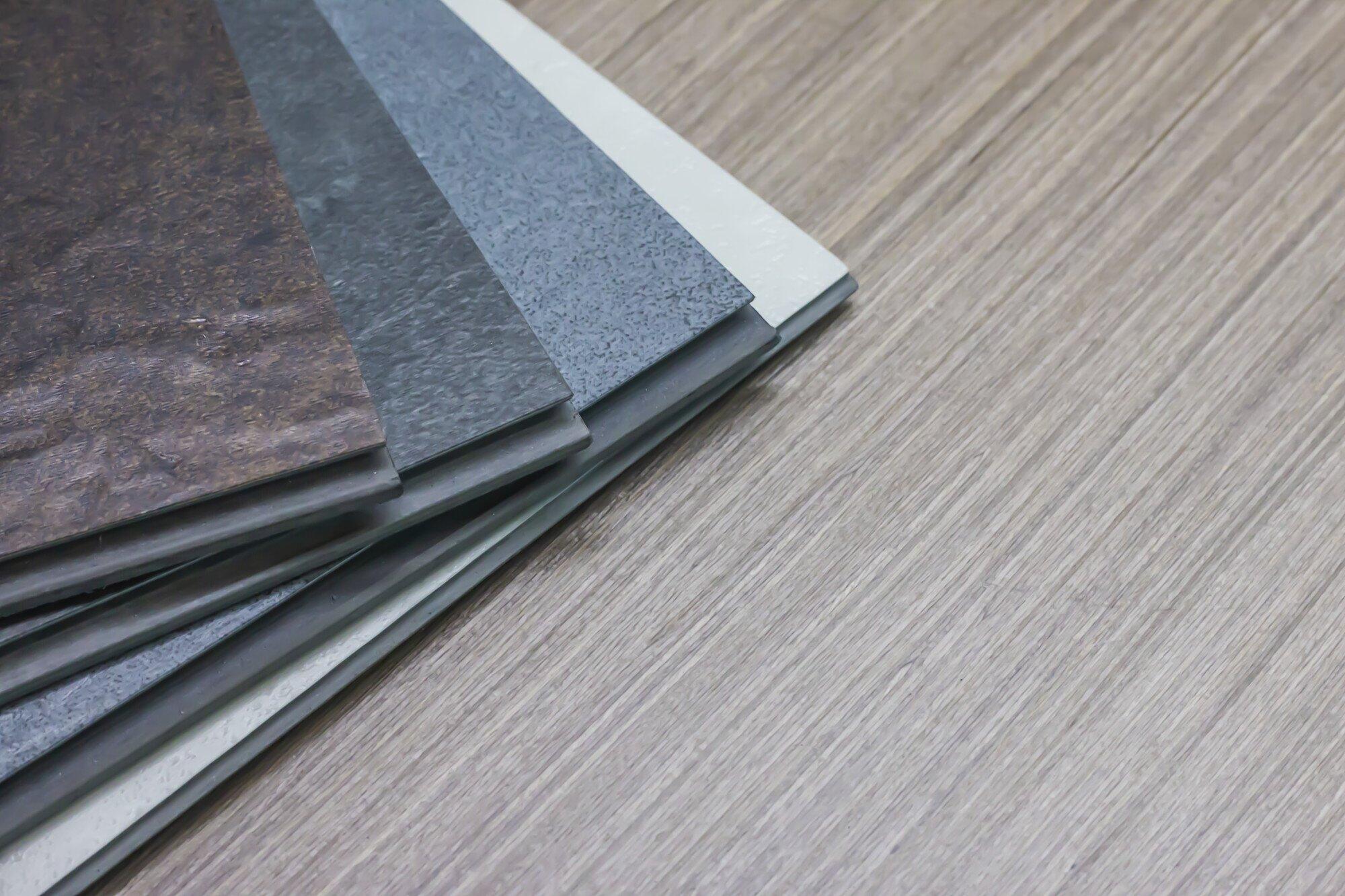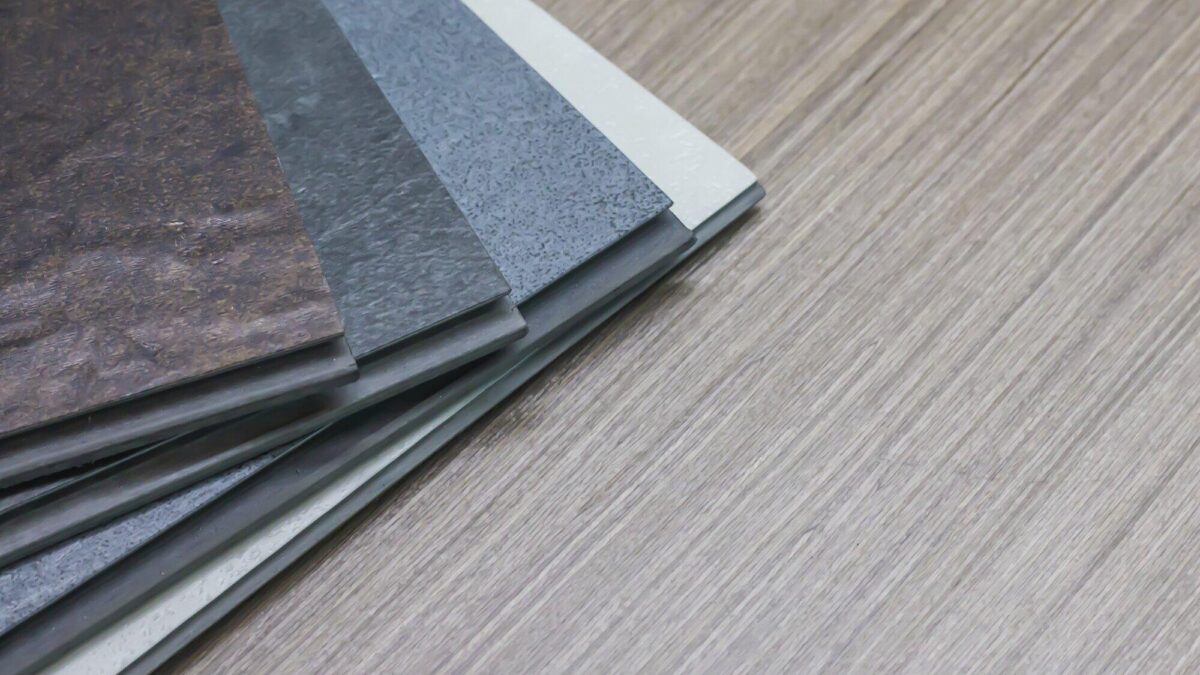
Vinyl and laminate flooring stand out as the top choices for homeowners seeking durable, cost-effective, and stylish flooring solutions. However, deciding between them can pose a challenge, as each material presents its own unique set of advantages and drawbacks. In this blog post, we will delve into the key differences between vinyl and laminate flooring, examining the factors that set them apart. By gaining insights into these distinctions, you will be better equipped to make an informed decision about which flooring option aligns best with your specific needs and preferences.
Key differences between vinyl and laminate
Several key differences distinguish vinyl from laminate flooring. In this article, we’ll explore each of these disparities to help you determine the best option for your home’s requirements.
- Appearance: Vinyl flooring typically replicates the look of natural materials such as wood or stone with highly realistic designs. Similarly, laminate flooring also imitates these natural materials but may have a slightly less authentic appearance compared to vinyl.
- Cost: In terms of upfront cost, laminate flooring tends to be more affordable than vinyl. However, when considering long-term expenses, factors such as maintenance and replacement costs should also be considered. In some cases, laminate flooring may turn out to be more expensive in the long run compared to vinyl flooring.
- Water resistance: Vinyl flooring is inherently waterproof, making it an ideal choice for moisture-prone areas like bathrooms, kitchens, and basements. On the other hand, while laminate flooring is resistant to water, it is not entirely waterproof and may be vulnerable to damage from standing water over time.
- Heat resistance: Both vinyl and laminate flooring are resistant to heat, with vinyl having a slight advantage in this aspect. Vinyl flooring can withstand higher temperatures without warping or sustaining damage, making it a suitable choice for areas equipped with underfloor heating systems.
- Care and cleaning: Vinyl flooring is easy to clean and maintain, typically requiring only regular sweeping and occasional mopping with a mild detergent. While laminate flooring is also relatively low maintenance, it may be more vulnerable to scratches and damage from abrasive cleaners.
- Durability and maintenance: Vinyl flooring is renowned for its durability, effortlessly resisting scratches, dents, and stains. While laminate flooring also offers durability, it may exhibit signs of wear and tear over time, especially in high-traffic areas.
- Installation: Both vinyl and laminate flooring offer a variety of installation options, including click lock, glue-down, and loose-lay methods. However, vinyl is generally regarded as easier to install, particularly for DIY enthusiasts.
- Lifespan: With proper care and maintenance, both vinyl and laminate flooring can endure for many years. However, vinyl flooring typically boasts a slightly longer lifespan owing to its superior resistance to moisture and wear.
- Comfortable: Vinyl flooring provides a softer underfoot feel compared to laminate, enhancing comfort during extended periods of standing. This feature is especially advantageous in areas where you frequently spend time on your feet, such as the kitchen.
- Resale value: Although both vinyl and laminate flooring can improve the aesthetic appeal of your home, laminate may boast a slightly higher resale value because of its perceived superior quality and durability.
- Environmental impact: In terms of environmental impact, both vinyl and laminate flooring have their advantages and disadvantages. Vinyl flooring is frequently crafted from synthetic materials and may emit volatile organic compounds (VOCs) during both production and installation. On the other hand, laminate flooring might contain formaldehyde-based adhesives, which can also contribute to indoor air pollution. Nonetheless, certain manufacturers provide eco-friendly alternatives made from recycled materials or sustainable sources.
Which Is Better?: Laminate or Vinyl Flooring
In the end, choosing between laminate and vinyl flooring hinges on your needs, budget, and aesthetic tastes. While laminate may present a more budget-friendly option with a potentially higher resale value, vinyl flooring stands out for its superior water resistance, durability, and maintenance ease. By thoroughly assessing the key distinctions outlined in this guide, you can make a well-informed decision and select the flooring option that aligns best with your home and lifestyle.

